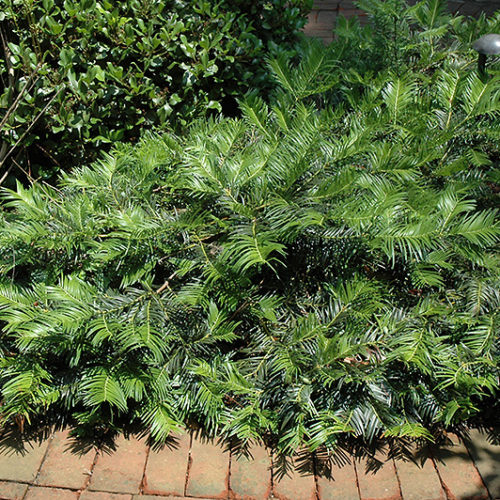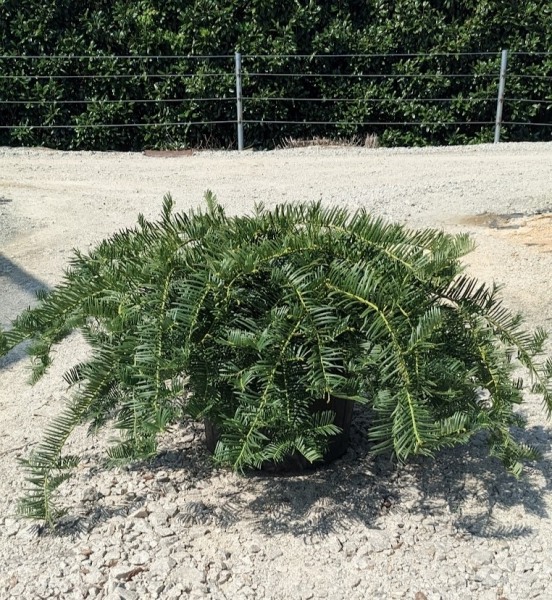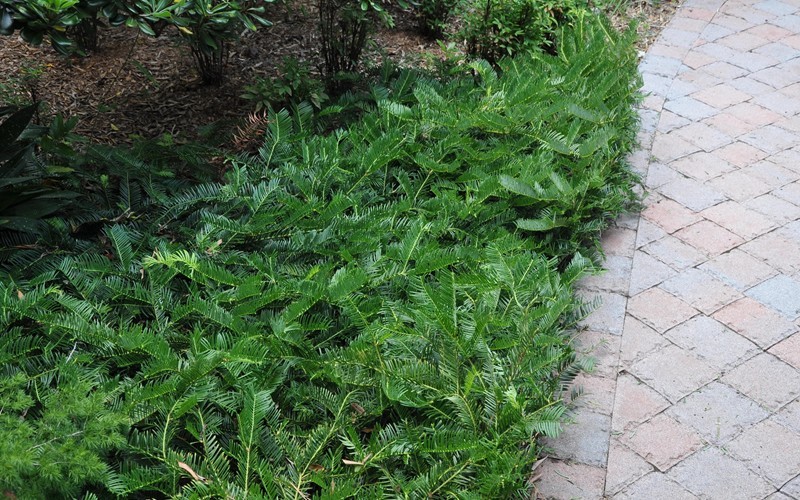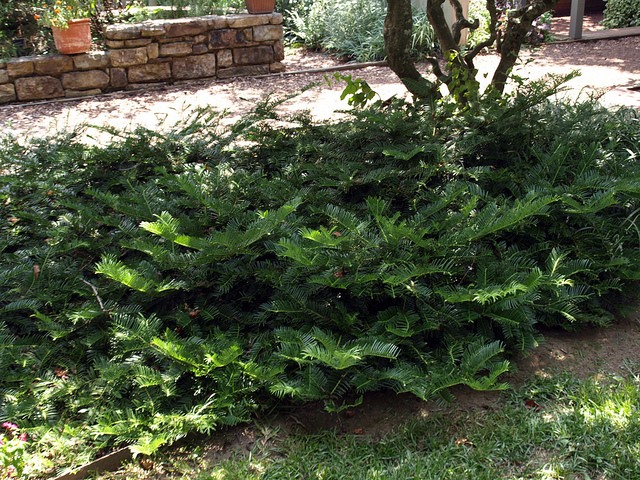Creeping Japanese Plum Yew
| yew |
It is a evergreen, perennial shrub, see how the Creeping japanese plum yew looks like in the garden and landscape.
Creeping Japanese Plum Yew is suitable for growing in USDA hardiness zones: 6a, 6b, 7a, 7b, 8a, 8b, 9a, 9b. Other winter zone scales for planting this yew are ANBG: 1, 2, 3; RHS: H7, H6, H5, H4, H3; PHZ: 7a, 7b, 8a, 8b, 9a.
Yew details
| Plant type | shrub, groundcover, containers | ||||||||
| Life cycle | perennial, evergreen | ||||||||
| Sun needs | shade, part shade, part sun | ||||||||
| Growth habit | trailing, cascading, spreading | ||||||||
| Height at maturity | 30 sm - 60 sm | ||||||||
| Spread | 90 sm - 1 m | ||||||||
| Spacing | 90 sm for mass plantings; 6 feet (1.8m) or more for space between plants | ||||||||
| Soil type | loamy, sandy, clay, silty | ||||||||
| Soil moist/drainage | well drained moist, well drained, dry | ||||||||
| Soil PH | 5.0 - 7.0 (strongly acidic - neutral) | ||||||||
| Water needs | average, low when established | ||||||||
| Maintenance / care | very low | ||||||||
| Resistance to | deer, disease, drought, heat, insect, dry soil, deep shade | ||||||||
| Gardens types | container, xeriscape, rock | ||||||||
Winter hardiness zones:
| |||||||||
 Cephalotaxus harringtonia, commonly known as Japanese plum-yew, Harrington's cephalotaxus, or cowtail pine, is a coniferous bush or small tree in the family Taxaceae. It is native to Japan, but is occasionally utilised in western gardens and Europe. The word "plum" in the name comes from the purple-red fruits that are produced on female plants.
Cephalotaxus harringtonia, commonly known as Japanese plum-yew, Harrington's cephalotaxus, or cowtail pine, is a coniferous bush or small tree in the family Taxaceae. It is native to Japan, but is occasionally utilised in western gardens and Europe. The word "plum" in the name comes from the purple-red fruits that are produced on female plants.
Creeping Japanese Plum Yew (Spreading Japanese Plum Yew, Creeping Yew or Spreading Yew) is an evergreen shrub or groundcover, female plants have plum color berries. Japanese Plum Yew prefers shade or mostly shade ar filtered sun. Where climates are cool during summer it can be planted in full sun, but otherwise prefers some shade, preferably in the afternoon.
Can be grown on any kind of well drained moist or dry ascid soil. Requires very low maintenace / care.
Creeping Plum Yew (Cephalotaxus harringtonia Prostrata), is an elegant plant with a spreading habit and attractive arching branches covered with glossy, flattened, very deep green needles that provide a very unique texture in the landscape.
If you live and garden North of USDA cold hardiness zone 6a, where this Plum Yew is not reliably winter hardy, you'll be happy to know it can be grown in containers that can be brought indoors during winter and placed back outside when temperatures warm up in spring.
The Creeping Japanese Plum Yew is ideal for use in groupings or mass plantings in shady to partly shaded landscape borders and home foundation plantings. It is an excellent choice for an evergreen groundcover under the canopies of large trees. Looks very nice around garden ponds or in shady rock gardens near boulders. Also suitable as a solor or combined with other plants in pots, planters and other containers. A fine addition to Asian gardens, perennial shade gardens, rock gardens, tropical look gardens, wildlife gardens, and Xeriscape gardens (low water needs).
Creeping Japanese Plum Yew @ wikipedia.













